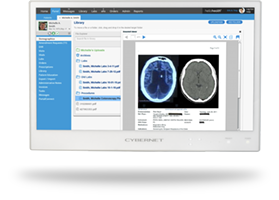Reliability means that something will work as expected. For computer reliability, the computer will operate as intended: turn on / off when you press the power button, run its software, and connect to the internet as needed, etc., consistently and dependably. Today's companies have developed many strategies to ensure their computer systems are as reliable as possible, whether using medical computers to manage healthcare groups or the latest AI computers.
Measuring Computer Reliability Through Reliability Metrics
Reliability is not black and white (or, in the case of computers, on and off). Instead, reliability can be calculated through reliability metrics. These measures indicate how long a computer or other system functions as expected before encountering an unexpected issue. The data used for these metrics comes from a variety of sources, ranging from formal testing, online questionnaires, and customer testimonials.
The following are four of the most well-known metrics used to measure computer reliability.
- Availability (AVAIL)
Also called "uptime," AVAIL shows the percentage of time that a system is available for use. A network is said to have an AVAIL of 96 percent if it's down an average of 4 hours out of 100 hours of operation. Note that this metric incorporates both planned and unplanned downtime in its calculations.
- Mean Time to Failure (MTTF)
MTTF is a widely used metric defined as the average time between unexpected events. For example, if a smartphone mistakenly launches its camera on average every 300 hours, it's said to have an MTTF of 300 hours.
- Probability of Failure on Demand (POFOD)
The likelihood of failure when a user requests service. A computer-aided diagnosis algorithm that fails to correctly identify a tumor in an X-ray on average once out of a hundred times has a POFOD of 1 percent.
- Rate of Occurrence of Failure (ROCOF)
The number of unexpected events over a particular timespan. A laptop that fails to boot 5 times every 1,000 hours has a ROCOF of 5 per 1,000 hours.
Improving Computer Reliability
The IT department is responsible for managing and maintaining computer operations and systems within companies. These range from meeting technical and user requirements to achieving regulatory compliance and long-term cost efficiency.
If you're with the IT department and looking to maximize computer reliability, you should look at the following:
Quality Hardware
A computer's physical components, such as the CPU and storage drives, run and execute software and store data. To maximize their reliability, consider investing in top-name brands in their respective areas. Work directly with an original equipment manufacturer (OEM) instead of resellers, as the OEM will have complete control over the components of its products thanks to its bill of materials (BOM).
Cooling Systems
The heat generated by computers affects their performance and can lead to a shutdown. This makes PC cooling systems vital to keep the computers functioning. Measures to minimize heat include proper airflow and clean fan systems. Fanless cooling should also be considered, especially for reliability, as they don't have moving parts that can break and shut down the PC.
Appropriate Operating Systems
Operating systems (OS) ensure the computer's hardware and software applications run as planned. To maximize reliability, you should verify your OS is right for the job: many consumer-grade OS simply cannot handle the more punishing workload typical in the healthcare and industrial sectors, or lack compatibility with healthcare and enterprise apps and programs. Regular updates, such as critical security patches, bug fixes, and performance enhancements, should also be scheduled and run.
Cybersecurity
Computer systems are constantly under attack by bad actors, interested in the valuable data they contain or the operations they're running (example: gas and oil platforms). Attacks that break through can shatter that system's reliability, resulting in data loss, performance degradation, and even shutdowns in extreme cases. Cybersecurity measures, such as regular antivirus scans and network segmentation (essentially, internal firewalls), should be planned and run accordingly. You should also review whether your sector has even more specific measures, such as industrial cybersecurity for manufacturing and transportation.
Importance of Computer Reliability
Computers play a massive role in modern society. Many complex operations, such as making phone calls and processing credit card payments, are effortless, straightforward, and reliable for users thanks to computers.
Examples of reliable computer uses include:
- They handle tedious tasks and more. Algorithmic trading is now being used to manage many of the trades on Wall Street. These are computer systems automating many once common trading decisions involving price, volume, and timing. On a typical day, 50 to 60 percent of tasks are completed using complex algorithms and formulas. These figures rise to 90 percent during volatile times. With such tasks handled reliably, human stockbrokers are freed to work on other stratagems.
- Make vital information readily available. Medical providers and other staff in the past had to rely on a patient's memory to get their medical history. Or they had to go through piles of paperwork to do so. Now, such information is stored electronically in electronic medical records (EMR). Providers can access those records with a single touch or screen, optimized on EMR computers to deliver top-quality information consistently and reliably.
- They create new job opportunities. Site Reliability Engineers (SREs) are computer specialists tasked with improving the reliability and stability of a company's systems. The future for SREs is bright, with the specialty expected to grow by 30 percent over the next five years.
These examples and more only work because people trust the computers to be reliable and to work consistently as intended. Wall Street would be in chaos if those business computers began displaying nonsensical information during critical trades. Trust in medicine would be jeopardized if EMRs brought up the wrong patient's vitals during an operation. The results in these scenarios range from huge financial losses to possible patient injury.
Let Cybernet Be Your Provider for Reliable Computers
Computer reliability refers to the expectation that a computer and its related functions, such as networking, perform consistently according to specifications. Reliability must be exceptionally high, given that computers are integral to almost every aspect of modern life. Thus, IT departments have developed many measures to maximize the reliability of their computers, from the hardware selected to cybersecurity.
To find out more about computer reliability and ways to improve it, contact Cybernet Manufacturing. We offer a comprehensive range of computers, each right-built to run reliably in their respective environments, from 24/7 hospital operations to the constant dust and debris found in typical warehouses. And if none of our pre-built options meet your needs, no problem! As an OEM, we own all our computer designs and BOM. We're quite confident we can customize the right computer for your specific needs and requirements.

